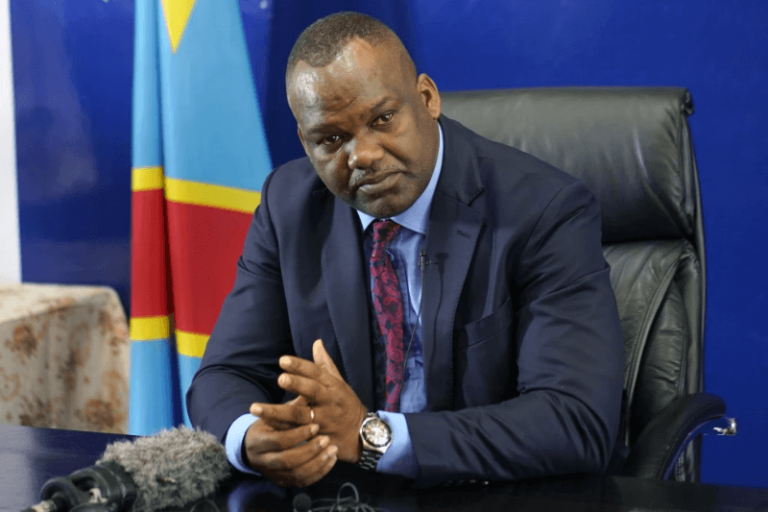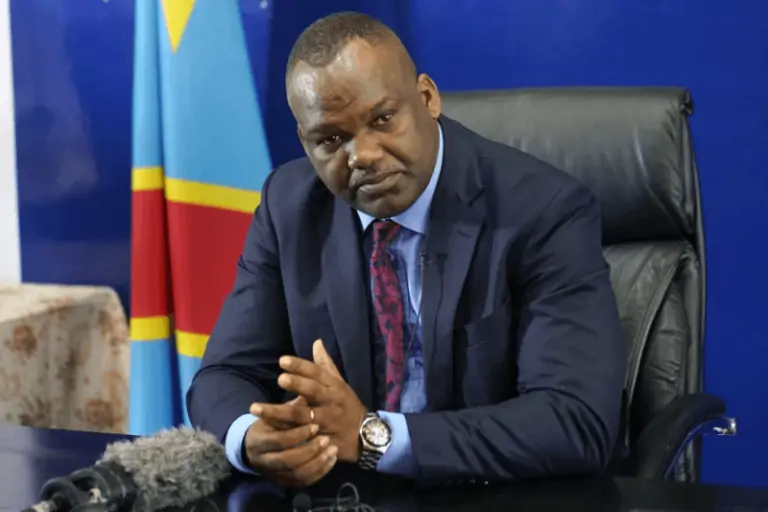

rebel leader corneille nangaa and 24 others sentenced by congo military court to death
Including Corneille Nangaa, the rebel coalition Alliance Fleuve Congo (AFC) commander, a military court in the Democratic Republic of Congo (DRC) on Thursday sentenced 25 persons to death. Beginning late last month and broadcast on television, the high-profile trial resulted in a verdict with major ramifications for the current crisis in Eastern Congo.
Along with nineteen other defendants, Corneille Nangaa was convicted of treason, war crimes, and participation in an uprising. Since Nangaa and the 19 others are on the run right now, they were tried in absentia. Nangaa said in a text message to the Associated Press from an unidentified location his contempt for the trial, writing, “This nauseating judicial saga reinforces our struggle for democratic normality in Congo.”
Launched by Nangaa in December, the political-military movement AFC aimed at unifying several armed factions, political parties, and civil society organizations against the Congolese government. Among the most infamous members of the AFC are the armed organization M23, accused of mass killings among other crimes in the eastern conflict-torn Congo.
The trial and following sentence fit a larger background of violence and tension in eastern Congo. Along with U.S. and U.N. officials, President Felix Tshisekedi has accused surrounding Rwanda of arming the M23 rebels with military aid. Rwanda refuted these claims, but in February it acknowledged having troops and missile systems in eastern Congo, citing worries over Congolese military operations close to its border.
Following closely on the heels of a ceasefire agreement between Congo and Rwanda mediated by Angola, the court sentenced Nangaa to death. Seen as a flimsy attempt to reduce the decades-long violence afflicting the area, the truce went into force on Sunday. Previous truces, however, have collapsed within weeks and violence has already started close to the Uganda border.
Yvon Muya, a conflict studies specialist at Saint Paul University, says the death sentence against Nangaa could be used as leverage in further discussions with Rwanda or the several armed groups functioning in the area. “This decision could be a calculated action by the Congolese government to support its position in any upcoming peace negotiations,” Muya said.
One of the worst humanitarian catastrophes in the world results from the decades-long violence in Eastern Congo. There are more than one hundred armed organizations operating in the area, many of them fighting for dominance of territory and important mineral resources. Widespread violations of human rights including mass executions, rapes, and other crimes have been linked to these organizations.
About 7 million people have been displaced by the continuing violence; many of them live in makeshift camps under appalling conditions. Many more people still live outside the reach of humanitarian relief, therefore aggravating the local suffering.
The sentence of Nangaa and his friends emphasizes the continuous difficulties Congo faces in trying to bring peace and stability back to the eastern region of the nation. The international community keeps alert of the possible consequences for the larger area as the circumstances develop.
The Oklahoma City Thunder secured their tenth consecutive victory by beating the Chicago Bulls 145-117. This victory raised their season…
Rob Walter Resigns his Position as coach for the Proteas men's team for white-ball games because personal problems needed attention.…
Starting April 2, South African drivers will get lower costs when filling their tanks as fuel prices decrease for all…
The U.S.-based driver training company Zutobi analyzed road safety worldwide and found South Africa stays last in driving danger since…
The Basketball Africa League (BAL) returns for its 2025 season with exciting changes and developments. Since 2019 the NBA-linked basketball…
The Somali president supports their military forces to eliminate the threats from Al-Shabaab, ISIS, and Al-Qaeda. The Somali National Army…
This website uses cookies.